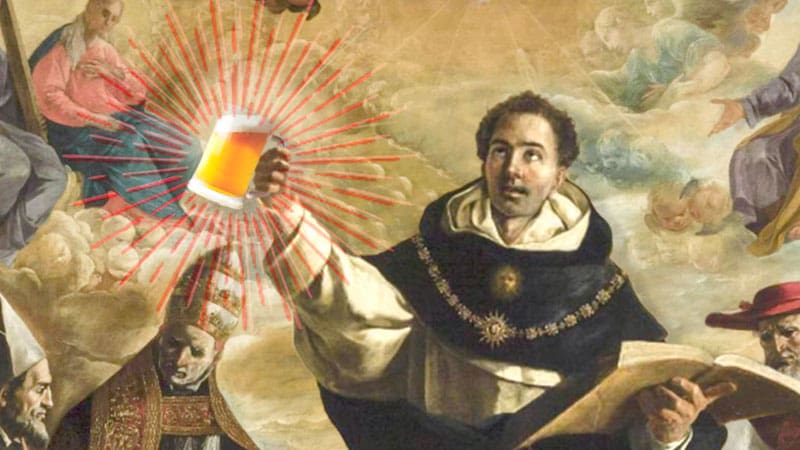I chat with Fr. Damian Ference about essence, existence, and why Thomas taught that God’s essence is existence!
Buckle up.

I really enjoyed these podcasts! Looks like your missing a name under the Patrons section ;). I look forward to the next one!




I really enjoyed these podcasts! Looks like your missing a name under the Patrons section ;). I look forward to the next one!
I think anyone interested in philosophy would enjoy this particular podcast, even if they happen to be an atheist, like myself. The way you prefaced it was excellent, IMO: being overly concerned about seeming intelligent may form an obstacle to growing in wisdom. Philosophical discourse encourages us to practice intellectual humility, while also allowing us to take some risks in the ideas we put forward for examination. That’s what makes it fun.
Now, on to the topic itself. Fr. Ference said, “The only way that things can exist is if they’re participating in this thing called existence, which is God himself. … He just is being itself.” “Being” or “existence” is a synonym for “reality”. Atheism is not a commitment to the position of denying reality, being, or existence itself. So it seems that atheists are either really “theists”, given such a definition of “God”, or that theism consists in more than just the acceptance of “being itself”. In other words, when theists use the word “God” they don’t just mean mere existence itself, but something else in addition to that.
A hint of what they might mean comes later in the podcast: “The basis of reality is personal.” This is an interesting statement, although it’s hard to glean exactly what it means. On the one hand, it could mean panpsychism: mind is universal. Alternatively, it could be an expression of pantheism? But given that your interlocutor is a Catholic priest, the most straightforward interpretation is that “‘God’ is a person.”
This is where things start getting tricky. What could it possibly mean to say that reality itself is personal; that existence itself has thoughts, feelings, and desires; that it has a purpose in mind and a plan to execute in the fulfilment of that purpose? Although the initial argument tried to strip “God” of all anthropomorphism, with this later move we see anthropomorphism sneaking back in. This, I would argue, is where the disagreement between theists and atheists actually lies because this—the anthropomorphism—is exactly what makes “God” religiously appealing. If “God” merely meant existence itself, no debate would be had—the atheist would simply point out that there is nothing inherently theological about “existence itself.” But it’s the addition of these anthropomorphic layers to “God” that gives rise to the issues we commonly debate about.
In short, if “God” is defined as mere existence itself, then “God” becomes an inescapable brute fact about the world; namely, that *there is* a world. As existence itself, this “God” doesn’t stimulate debate though. At most, the atheist will simply point out that existence itself need not be understood in theological terms at all—we have a word for existence; not only is “God” is superfluous, but it may even be reckless to use the word “God” to denote existence itself, given that the word is saddled with such heavy anthropomorphic baggage.
I could be wrong, but I believe there is a difference between existence as you discuss it above and existence in the sensce of God’s essence is existence. One takes existence in its essence, as it “really” is; mysterious, an infinite depth. The other is simply physical existence as we understand it. The latter is grounded and dependent on the former, but not the same. Perhaps a conflation of the two is a part of your issue. But, at the end of the day, I have to think you’re mostly correct. If God is indeed essentially existence, the athiestic position is essentially a denial of capital E existence.